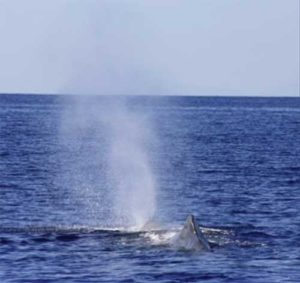
Since 2003, the Balearic Sperm Whale Project (BSWP) has been collecting data on the abundance, habitat preferences and behaviour of whales around the Balearic archipelago in the western Mediterranean.
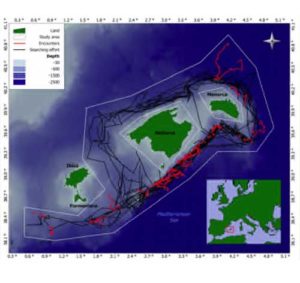
As a way of extending our annual field efforts to maximise the rate of data collection, the BSWP trialled a new venture in 2015 by offering, exclusively to undergraduate students in the School of Biology, the opportunity to participate in the field research on an expense-paying basis. It went well, and did so again in 2016, so we are continuing to offer spaces on one-week trips this year (we go to sea on the Saturday, and arrive back in port the following Friday).
What you will experience
The research is conducted from a chartered sailing yacht, since this provides the most cost-effective way of searching sometimes long distances for whales. You will come on board and participate as both crew and research assistants for a one week trip.
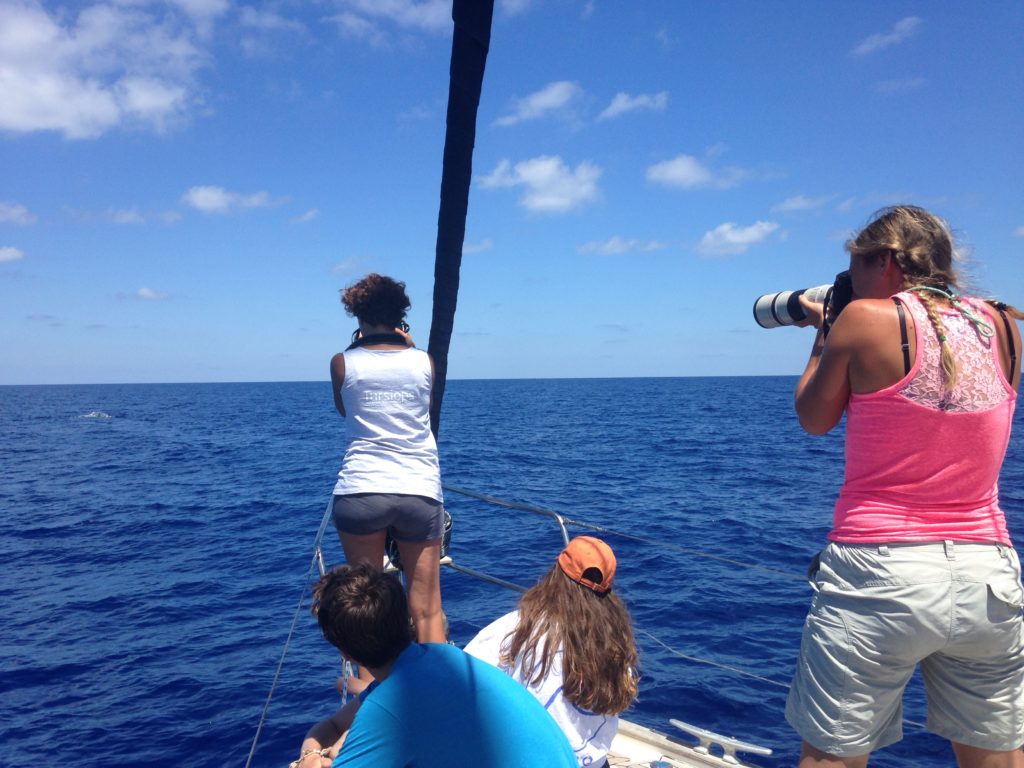
There will be up to 8 students, Dr. Luke Rendell the research leader and a qualified Spanish captain from Asociacion Tursiops on board. The boat will spend as much of that week at sea as the weather permits, operated 24 hours per day, but will return to the nearest port should weather conditions deteriorate. While in deep water, a towed hydrophone will be deployed to listen for the characteristic sounds of sperm whales foraging. If whales are detected, they will be located and approached so that they can be photo-identified, tracked, and recorded.
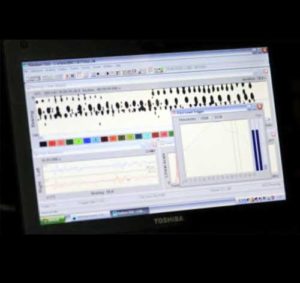
During daylight hours a visual watch is maintained for other cetacean species and when sighted they are approached and identified. All the information collected by the BSWP is reported directly to the local Fisheries Management Office, as well as the Spanish Ministry of the Environment, form whom research permits are obtained.
What will it cost
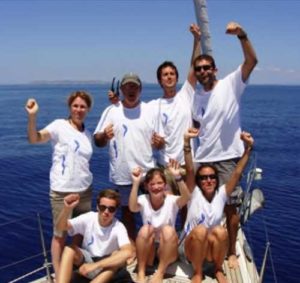 The research is not cheap – taking into account vessel, food, fuel and skipper costs. We are asking participating students to contribute £750 via the University online shop towards these expenses. Additionally, you will need to make your own travel arrangements to arrive on Mallorca on the day the trip starts. Once onboard there are no further expenses.
The research is not cheap – taking into account vessel, food, fuel and skipper costs. We are asking participating students to contribute £750 via the University online shop towards these expenses. Additionally, you will need to make your own travel arrangements to arrive on Mallorca on the day the trip starts. Once onboard there are no further expenses.
When will it happen?
In 2017, the trip will leave port on Saturday August 19, returning late on Friday August 25.
What to do if you are interested in taking part
If you are a School of Biology undergraduate and are interested in taking part in this research then the first thing to do is contact Dr. Luke Rendell via email ([email protected]) to express an interest.